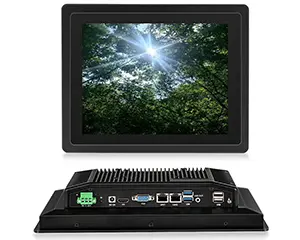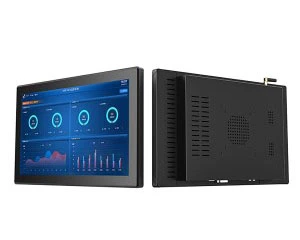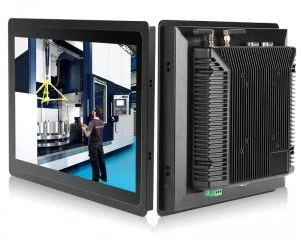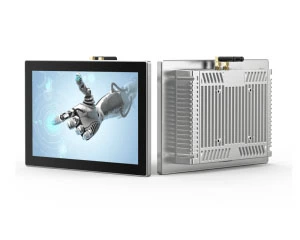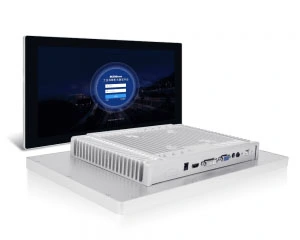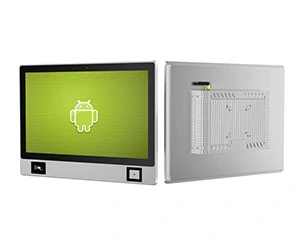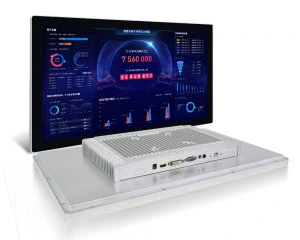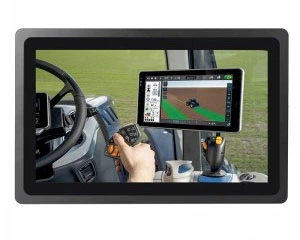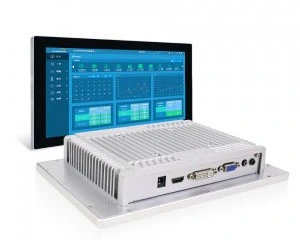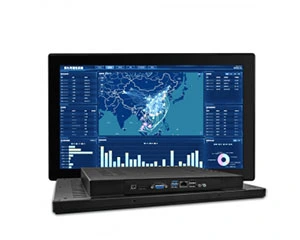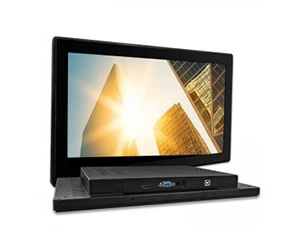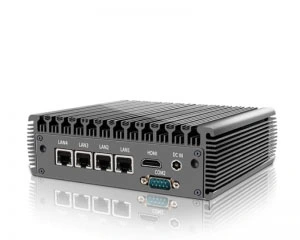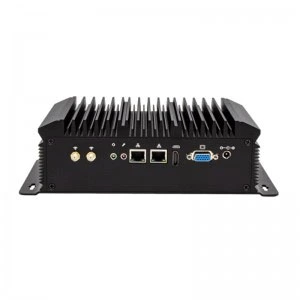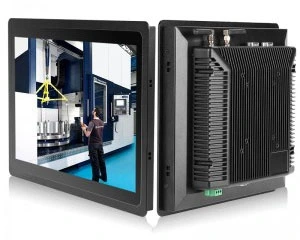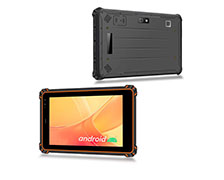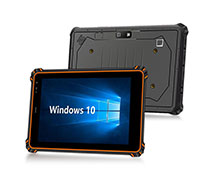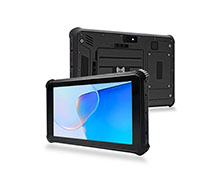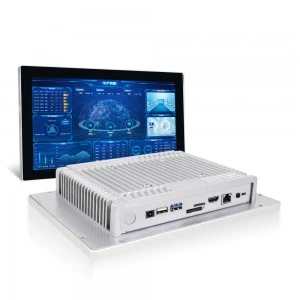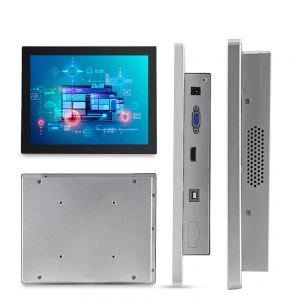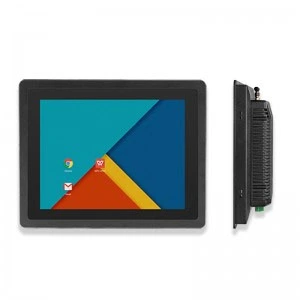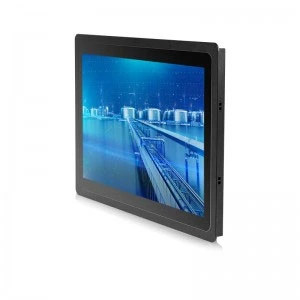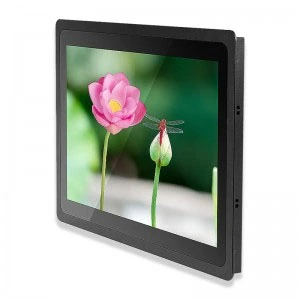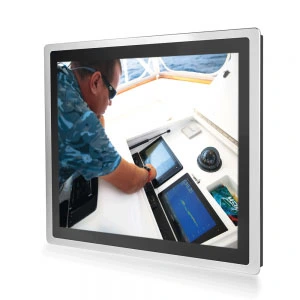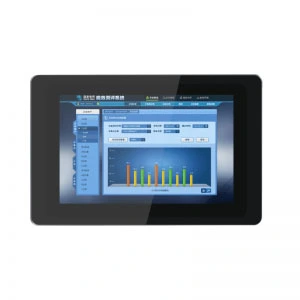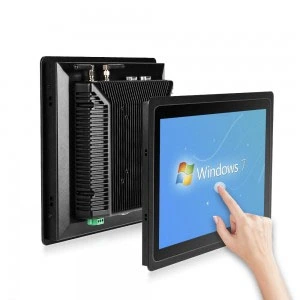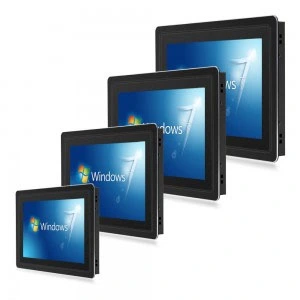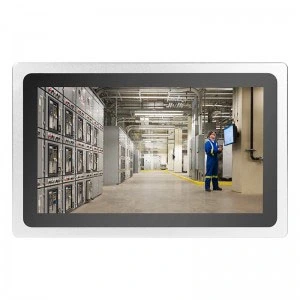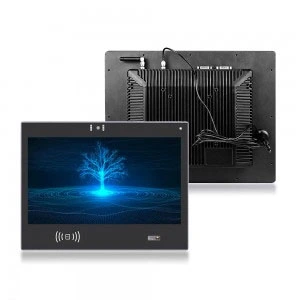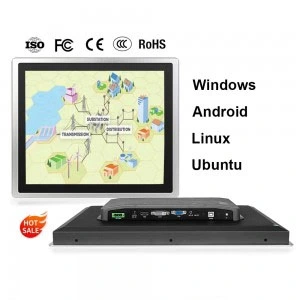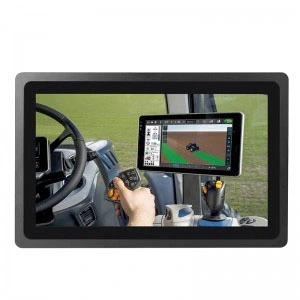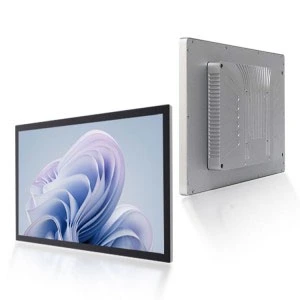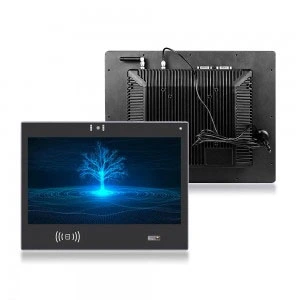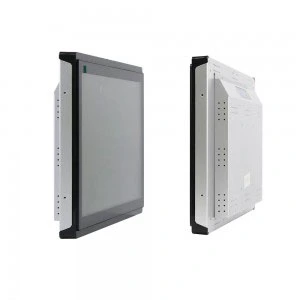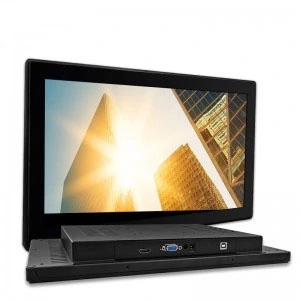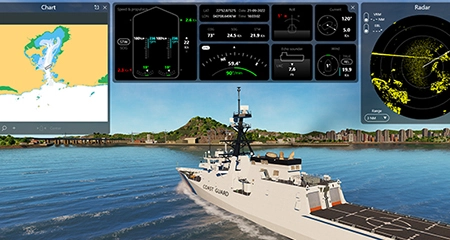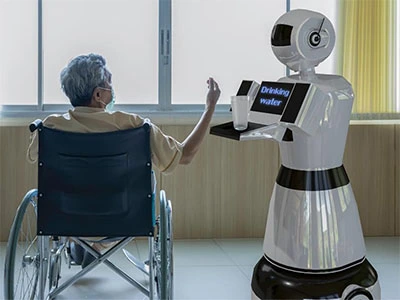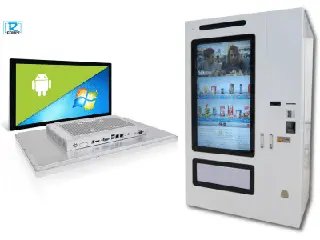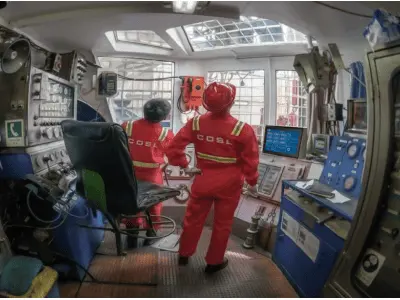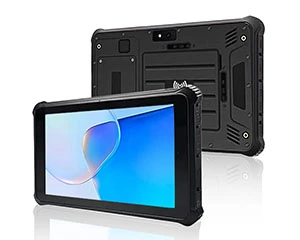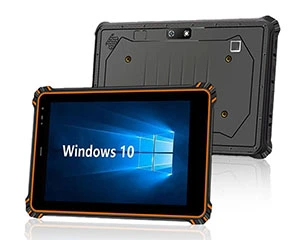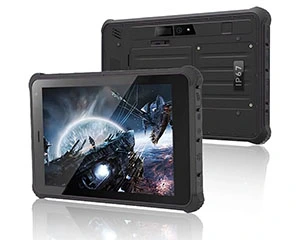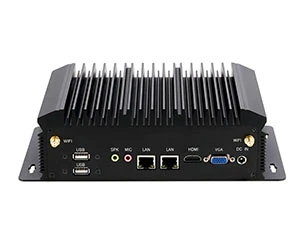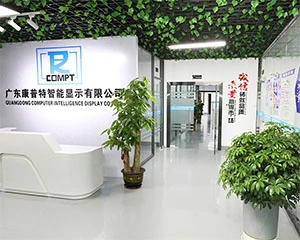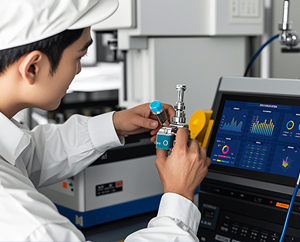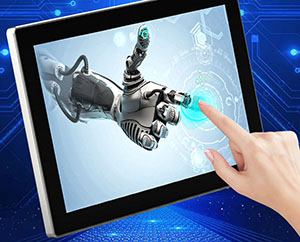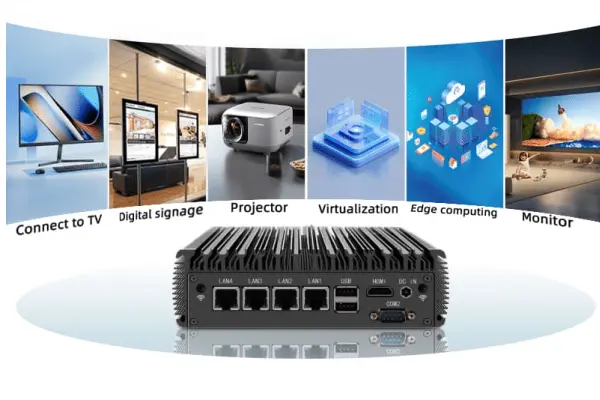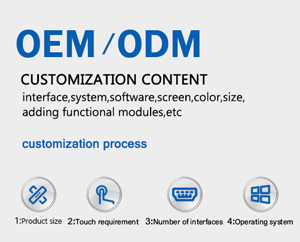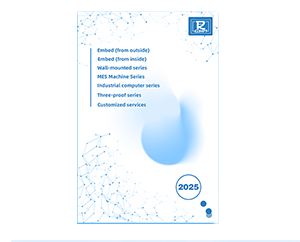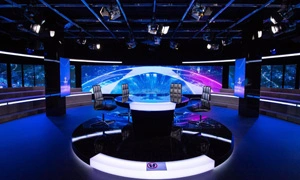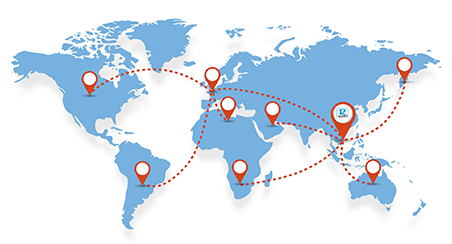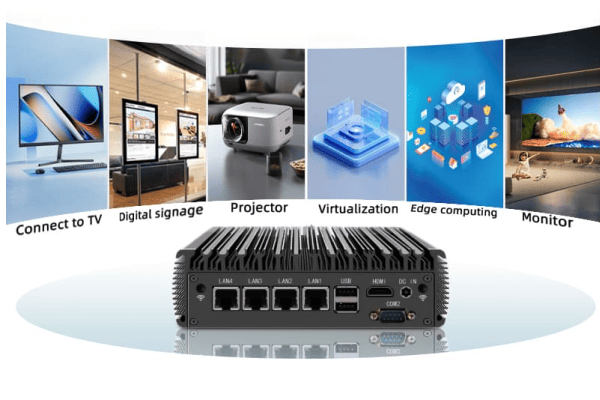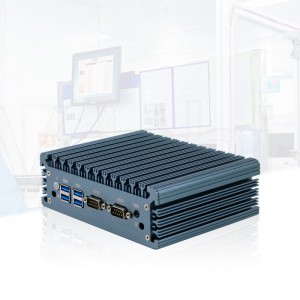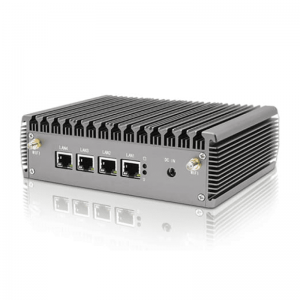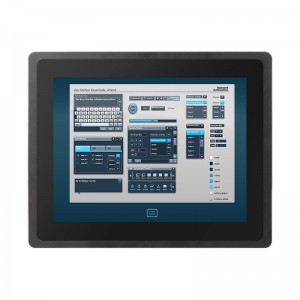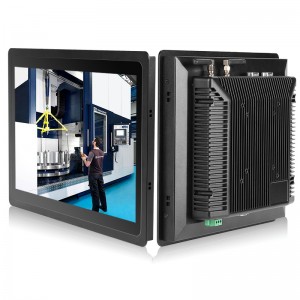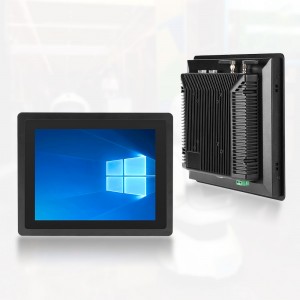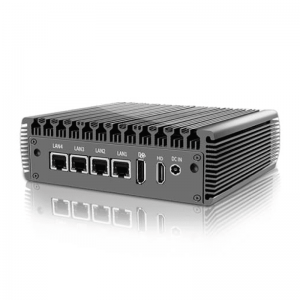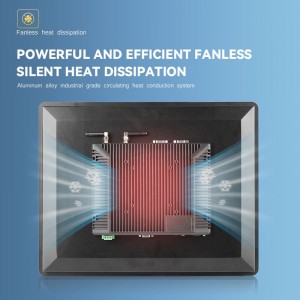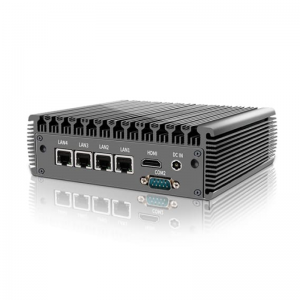1. Introduction
What is an Industrial PC?
Industrial PC (Industrial PC), is a type of computer equipment designed specifically for industrial environments. Compared with ordinary commercial PCs, industrial PCs are usually used in harsh working environments, such as extreme temperatures, strong vibrations, dust, humidity, or electromagnetic interference. Therefore, they are dust-proof, water-proof, shock-proof, etc., and mostly support 24/7 continuous operation.
Application Areas
Industrial PCs are widely used in automation control, production line monitoring, machine vision, data acquisition, logistics management, intelligent transportation and other fields. They play a central role in modern industry, helping to improve productivity, optimize resource allocation and reduce human error.
Why choose industrial PCs?
Businesses and factories choose industrial PCs primarily for their reliability and stability, which are essential for mission-critical continuity. Additionally, industrial PCs typically have a rich set of I/O interfaces and good expandability to connect to a wide range of industrial devices and sensors.
Importance of the price factor
Price is an important consideration when deciding which industrial PC to purchase. Industrial PCs at different price points vary significantly in performance, features and reliability, so understanding the factors behind price is critical to making an informed buying decision.
2. Overview of industrial PC prices
Prices for industrial PCs are typically categorized into three main ranges based on their performance and functionality: low-budget, medium-budget, and high-budget.
Low Budget Range
Price range: usually between $500 and $1000.
Scenarios: Suitable for industrial scenarios with low performance requirements and less demanding operating environments, such as simple data monitoring or automated operations that do not require complex calculations.
Performance Characteristics and Limitations: Low-budget industrial PCs tend to have more basic configurations, with weaker processor performance, limited memory and storage space, and less scalability. They also have lower protection levels for indoor environments and cannot be exposed to harsh conditions for extended periods of time.
Medium Budget Range
Price range: typically between $1,000 and $3,000.
Advantages and common configurations: These industrial PCs are usually equipped with mid- to high-end processors, such as the Intel Core i series, and the memory capacity is usually between 8GB and 16GB, with support for SSD solid state drives. With stronger environmental adaptability, such as dustproof and waterproof design and wider operating temperature range.
Needs met: Able to meet the needs of automated production lines, data acquisition systems and general industrial control systems, with a certain degree of expandability and interface options.
High Budget Range
Price range: Over $3,000.
High-end configurations and unique features: High-budget industrial PCs are equipped with top-of-the-line processors (e.g., Intel Xeon), high-capacity memory (32GB or more), and multiple storage options, often with support for RAID technology. In addition, they have superb environmental tolerance and are able to operate stably in extreme temperatures, humidity and electromagnetic interference environments.
Specialty: These high-end devices are typically used for machine vision, intelligent manufacturing, complex industrial automation control systems, or tasks that require high reliability and real-time computing.
3.Factors affecting the price of industrial PCs
Hardware configuration
CPU processor performance:
High-performance CPU processors are more expensive and can provide faster computation speeds and better performance. Low-performance CPU processor price is relatively low, but in dealing with complex tasks may be insufficient performance.
Memory capacity:
The larger the memory capacity, the higher the price. Larger memory capacity improves the operating speed and multitasking ability of the Industrial PC.
Storage type and size: The price of different types of storage devices varies greatly, e.g., solid state drives are more expensive than mechanical hard drives, but have faster read and write speeds and higher reliability. The larger the storage capacity, the higher the price.
Special Functional Requirements
Durability and environmental adaptability:
The higher the dustproof, waterproof, and shockproof rating of an industrial PC, the higher the price. These features ensure that the Industrial PC operates stably in harsh environments and extends the life of the device.
Wide temperature operating range:
Industrial PCs that can work in a wider temperature range are more expensive. Such devices are suitable for some special industrial environments, such as high or low temperature environment.
Anti-jamming capability
Industrial PCs with high immunity to interference are more expensive. This kind of equipment can operate stably in the environment with strong electromagnetic interference to ensure the accuracy and reliability of data.
Expandability and Customization
Specific needs (such as expansion slots, interfaces) on the price impact:
If an industrial PC needs to have specific expansion slots or interfaces, the price will increase accordingly. These expansion slots and interfaces can fulfill different application requirements, but they also increase the cost of the device.
Brand and Quality
Prices vary by brand:
The price of industrial PCs from well-known brands is usually higher because these brands have high visibility and good reputation, and product quality and after-sales service are more guaranteed. Niche brands have relatively lower prices, but there may be some risks in terms of quality and after-sales service.
Price difference between well-known brands and niche brands:
Industrial PCs of well-known brands invest more in R&D, production, and quality control, so they are more expensive. Niche brands may have certain advantages in certain aspects, such as low price, flexibility, etc., but they may not be as good as well-known brands in terms of overall performance and reliability.
The impact of quality on price:
Good quality Industrial PCs are more expensive because they utilize better materials and more advanced manufacturing processes for greater reliability and stability. Poor quality industrial PCs are relatively inexpensive, but may have various problems during use, increasing maintenance costs and downtime.
Scale of production
The difference between bulk and individual purchases:
Purchasing Industrial PCs in bulk usually results in better prices because the supplier can reduce production costs and selling costs. Individual purchases are relatively more expensive because the supplier has to bear higher cost of sales and inventory costs.
4、How to choose the right industrial PC according to the demand
Application Scenario
Select the appropriate industrial PC according to the application scenario, for example, the industrial PC in the automated production line needs to have high real-time and reliability, while the industrial PC in the monitoring system needs to have good image display and storage capacity. Therefore, when selecting an industrial PC, it is necessary to determine the required performance and functions according to the specific application scenarios.
Performance Requirements.
Determine whether your task requires high-performance computing, handling large amounts of data or image processing, which will directly affect your choice of processor, memory and storage. If the workload is large, you need to choose an industrial PC with high performance to ensure stable operation of the system. If the workload is small, you can choose an industrial PC with lower performance to reduce cost.
Budget constraints
In the budget range to get the optimal configuration is the key to choose the industrial PC, do not have to pursue the top of the hardware, to find a balance between performance and price is the most reasonable choice. You can compare different brands and models of industrial PCs to choose the most cost-effective products. At the same time, you can also consider some used equipment or rental equipment to reduce costs.
5, common industrial PC brands and their price comparison
COMPT:
Company background:
an industrial PC manufacturing factory established in 2014 in Shenzhen, China, with some influence in specific market segments and application scenarios. The main features are high product quality, suitable price and excellent after-sales service. Like some industrial monitors are just over 100 USD.
Price Characteristics:
Low price range products: COMPT’s low price range products may be able to meet the basic industrial application requirements in terms of performance, such as some simple data acquisition, monitoring and other scenarios. The price advantage of these products is more obvious, suitable for customers who are more sensitive to the budget. However, they may be relatively weak in terms of processor performance, storage capacity, etc., and expansion capabilities may also be more limited.
Medium price range products: In this range, COMPT’s industrial PCs usually have more stable performance and richer features. For example, they may use better processors, have more memory and storage capacity, and have a certain degree of expandability to meet some moderately complex industrial automation control, process control and other application scenarios.
High price range products: Highly priced COMPT Industrial PCs are often targeted at specialized areas that require high performance and reliability, such as high-end manufacturing, aerospace, etc. These products may have powerful processing capabilities, and may be able to handle a wide range of applications. These products may have powerful processing power, high-precision data acquisition and control capabilities, as well as extremely high stability and reliability, and can operate stably for long periods of time in harsh industrial environments.
OnLogic:
COMPANY BACKGROUND:
Is a globally recognized industrial PC manufacturer and solution provider focused on providing hardware for the IoT edge. Founded in 2003, the company is headquartered in Vermont, USA, and has multiple offices around the world, including the US, Netherlands, Taiwan and Malaysia. Its products are known for being highly configurable and reliable, capable of operating in harsh environments.
Price Features:
Low Price Range Products: OnLogic’s low price range products are typically entry-level industrial PCs, such as some of its small, fanless mini PCs, which may start at around $1,000. These products are suitable for scenarios with high space and power requirements, but not particularly extreme performance requirements, such as simple IoT device monitoring, small automation control systems, and so on.
Mid-Price Range Products: Mid-priced OnLogic Industrial PCs offer a big step up in performance and features, and can be priced between $2,000 and $5,000. These products typically have strong processing power, large storage capacity, and a rich set of interfaces to meet the needs of most industrial automation, data acquisition, and monitoring applications.
Products in the High Price Range: Highly priced OnLogic products are targeted at specific, specialized areas that require high performance and reliability, such as high-end smart manufacturing and intelligent transportation. These products may utilize state-of-the-art processor technology, powerful graphics and high-speed data transfer capabilities, and may cost more than $5,000.
Maple Systems:
COMPANY BACKGROUND:
Maple Systems has been a quality leader in industrial controls since 1983, specializing in the design, manufacture and support of human-machine interfaces (HMIs), industrial PCs (IPCs) and programmable logic controller (PLC) solutions. Its products are recognized by customers for their ruggedness, reliability and feature richness, and have a high reputation in the international market.
Price Features:
Low Price Range Products: Maple Systems’ low-priced industrial PCs can start at around $600. These products are typically used in scenarios that do not require high performance but basic industrial control and data processing capabilities, such as equipment monitoring in small factories and simple automated production processes.
Medium price range: Medium-priced products are priced between $1,000 and $3,000, with more processing power, more storage and expansion options to meet the more complex industrial automation control and data collection tasks, such as production line control, process monitoring and control in medium-sized factories.
Higher Price Range Products: Highly priced Maple Systems industrial PCs are typically designed for specialized areas such as petrochemical, power and other industries where performance, reliability and safety are critical. These products may feature high-performance processors, redundant power and storage systems, strong immunity to interference, etc., and can cost $3,000 or more.
Industrial PC, Inc:
Company Background:
is a company that specializes in the manufacture and sale of industrial PCs and is well known in the international industrial PC market. Its products are widely used in manufacturing, automation, and transportation, and are trusted by customers for providing reliable industrial computing solutions.
Price Features:
Low price range products: The company’s low price range industrial PCs may start at around $800, mainly targeting some cost-sensitive customers for some basic industrial control and data acquisition scenarios, such as small automated production lines, warehouse management, and so on.
Medium price range products: The medium price range products are priced between $1500 and $4000, with good performance and functionality to meet the needs of most industrial applications, such as automated production in medium-sized factories, monitoring and control of intelligent transportation systems, and so on.
Higher Price Range Products: Higher priced Industrial PC, Inc products are typically designed to meet specific industry needs, such as precision control in high-end manufacturing, equipment monitoring in aerospace, and so on. These products may feature high-performance processors, high-precision data acquisition and control capabilities, and stringent quality and reliability standards, and may cost more than $4,000.
SuperLogics:
Company background:
has a market share in the industrial PC field and specializes in providing high-performance and reliable computing solutions for industrial customers. Its products are designed to focus on stability and durability and are able to adapt to a variety of harsh industrial environments.
Price Features:
Low price range: SuperLogics’ low price range products may start at around $700 and are mainly suitable for scenarios that do not require a high level of performance, but need to have basic industrial computing functions, such as simple equipment monitoring, data logging, and so on.
Medium price range products: Medium price range products are priced between $1200 and $3500, with good performance and stability, to meet the needs of some moderately complex industrial applications, such as automated production process control and monitoring, logistics management systems, and so on.
Higher Price Range: Highly priced SuperLogics industrial PCs are typically designed to meet the needs of specialized areas such as military, medical, and other industries where performance, reliability, and safety are paramount. These products may have powerful processing capabilities, stringent safety certifications and reliability testing, and can cost upwards of $3,500.
Siemens
Background:
Siemens is a world-renowned provider of industrial automation and digitalization solutions, with deep technical accumulation and rich experience in the field of industrial PCs. Its industrial PC products are known for their high quality, reliability and powerful performance, and are widely used in manufacturing, energy, transportation and many other industries.
Price Features:
Low-budget range: Siemens also has some relatively basic industrial PC products in the low-budget range, which may be priced around $1000 to $2000. For example, some small, relatively simple-function boxed industrial PCs are suitable for scenarios that do not require high performance but need basic industrial control and data processing capabilities, such as monitoring and control of small equipment, simple data acquisition, and so on. However, even with low-budget products, Siemens still maintains high quality standards and reliability.
Medium Budget Range: Medium-budget Siemens Industrial PCs are typically priced between $2,000 and $5,000. These products offer a good mix of performance, features and reliability to meet the needs of most industrial applications. For example, with strong processor performance, large memory and storage capacity, and a rich set of interfaces, they can be used in medium-sized factories for automated production, process control, and other scenarios.
High-budget range: High-budget Siemens Industrial PCs are designed to meet specialized areas where performance, reliability, and security are critical, and can cost upwards of $5,000. For example, products for high-end manufacturing, aerospace and other industries are equipped with powerful processing power, high-precision data acquisition and control, as well as extremely high stability and reliability, capable of running stably for long periods of time in harsh industrial environments.
Advantech
Company Background:
Advantech is a leading global provider of industrial computers and automation solutions. Its products cover various types of industrial PCs, embedded systems, and industrial communication devices, which are widely used in many fields such as industrial automation, intelligent transportation, and healthcare.
Price Features:
Low Budget Range: Advantech’s low-budget industrial PCs may be priced around $500 to $1000. These products usually have basic industrial computing functions and are suitable for simple application scenarios that do not require high performance, such as monitoring and control of small devices, data logging, and so on. Despite the lower price, Advantech products still maintain a certain level of quality and stability.
Medium Budget Range: Medium budget Advantech industrial PCs are priced between $1000 and $3000. These products have better performance and features to meet the needs of more complex industrial applications. For example, with higher performance processors, larger memory and storage capacity, and rich expansion interfaces, they can be used for automation control in medium-sized factories, intelligent logistics, and other scenarios.
High-Budget Range: High-budget Advantech industrial PCs are mainly targeted at specialized fields that require high performance and functionality, and may cost more than $3,000. These products usually have powerful processing power, high-precision data acquisition and control, and high reliability and stability, and can be used in high-end manufacturing, intelligent transportation, and other scenarios that require high performance from industrial PCs.
6, where to buy industrial PC: online and offline channel recommendations
Online channels:
well-known e-commerce platforms such as Amazon, Newegg and official brand websites are good choices for buying industrial PCs.
Offline channels:
authorized agents and distributors can provide better after-sales service and technical support.
Matters to pay attention to when purchasing (warranty, after-sales service, quality certification, etc.):
When purchasing industrial PCs, you need to pay attention to the warranty, after-sales service and quality certification of the products. Choosing a supplier with good after-sales service can ensure the normal operation of the equipment in the process of use. At the same time, you need to pay attention to the quality certification of the product to ensure that the product meets the relevant standards and specifications.
7, how to choose cost-effective industrial computer
Define their own needs: Before choosing an industrial PC, you need to define your own needs, including application scenarios, performance requirements, budgetary constraints and so on. Only after clarifying their needs can they choose the right industrial PC.
Compare different brands and models: You can compare different brands and models of industrial PCs to understand the differences in their performance, price, after-sales service and so on. Choosing a cost-effective product can reduce the cost while meeting the needs.
Consider the long-term use cost: In addition to the purchase price, you also need to consider the maintenance and upgrade cost of the industrial PC. Choose good quality, stable performance products, can reduce maintenance and upgrade costs, improve the cost-effectiveness of the total cost of ownership.
8, the importance of price when choosing industrial PC
In the choice of industrial PC, price is an important consideration. The price directly affects the cost and economic efficiency of the enterprise.However, the price is not the only consideration, but also need to consider the performance of the industrial PC, quality, after-sales service and other factors. Only by choosing a cost-effective industrial PC, can we meet the needs while reducing costs and improving the competitiveness of enterprises.
In order to help users make a more informed choice, the following are some practical suggestions: first, define their needs, according to the needs of the appropriate choice of industrial PCs. second, compare different brands and models of industrial PCs, choose the cost-effective products. Finally, consider the long-term cost of use and choose products with good quality and stable performance to reduce maintenance and upgrade costs.

Penny
Web Content Writer
4 years of experience
This article is edited by Penny, the website content writer of COMPT, who has 4 years working experience in the industrial PCs industry and often discusses with colleagues in R&D, marketing and production departments about the professional knowledge and application of industrial controllers, and has a deep understanding of the industry and products.
Please feel free to contact me to discuss more about industrial controllers. sales@gdcompt.com

